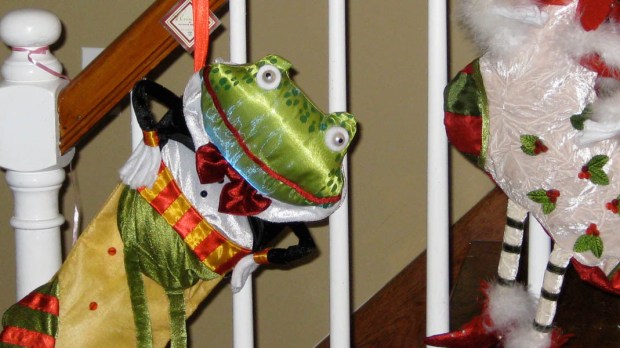Lenten Campaign 2025
This content is free of charge, as are all our articles.
Support us with a donation that is tax-deductible and enable us to continue to reach millions of readers.
When Jesus was born, he was not yet the full human expression of God’s Word. He was all of God’s Word, of course, but expressed in the simple and silent knowing of an infant. The full expression would come, but for now it is that of a newborn.
Cuddled against Mary, his mother, with Joseph hovering near by, Jesus in his fresh humanity did not yet understand himself, or hardly anything else for that matter. He knew only as do all infants when he was comfortable and when he was not, and he cried or gurgled, depending on the state he was in.
In his infancy, Jesus was the human verbum abbreviatum of God,an abbreviated word. The Word of God from all eternity, in Bethlehem he was God’s infant word.
There was a reason for that. Because by nature we human creatures possess an understanding limited by space and time, the Divine Word, the Logos, humbled himself to suit our capacities, becoming himself subject to space and time that we might grasp him and better comprehend him. The Eternal Word thus arrived to us in the most accessible of created forms, a human infant. It may help to remember that the Latin infans has as its literal meaning “one who does not speak.”
This was always the manner of God’s revelation, through familiar things and people. That revelation reached its pinnacle in the Incarnation, when the Second Person of the Trinity entered into space and time to endure all the human constraints humans confront.
In early Christmas sermons there is gasping wonderment that the Word should have become an infant in arms, the glory of the Logos made small, helpless, and dependent. It was in this condition the Word first came as flesh of our flesh. The authentic marvel of Christmas all comes down to a baby, the speechless Word of God, a verbum abbreviatum, bearing already the birthmarks of crucifixion..
The doctrine of the Incarnation means that the maker of all things made himself into a creature. Almighty God surrendered himself to all of the limitations and indignities we experience—aching feet, a hungry belly, the whole deal and ordeal of human life.
I am never entirely certain we ever appreciate the intensity of this mystery. I am absolutely certain I cannot.
A comparison may help. Suppose—by comparison—it was possible that a human could incarnate himself as frog. All to a high purpose of course, namely, to teach all frogkind everywhere how to live fully and completely in harmony with the Creator’s true destiny intended for frogs.
The human-incarnated-as-frog would live fully as a frog, starting life in a pool of water encased in the slimy goo and goop of frog-egg jelly, progressing from there in appropriate stages from a gill-breathing tadpole and on to the first inhalation of air on land, eventually snapping at flies and, along with all of that, trying to teach fellow frogs with a clarity that somehow rises above the incessant croaking all around.
I’m already thinking icky.
But the Word-made-flesh must, at some level, compare to that. It must also compare in this way: A human-incarnated-as-frog would require some supreme love of and exclusively for frogs, don’t you think?
Of course, we are not frogs. Most of what I know about frogs is their legs piled on the $8.99 blue plate special once served at the now-closed and by me much-lamented Gulf Stream Fish Market in Kansas City, Missouri. No kidding: they tasted like the best chicken you’ve ever had.
But back to my point here, and, okay, maybe my human-to-frog comparison isn’t the best.
Jesus said we are worth more than sparrows. Frogs, too, I’d suppose. When it comes to humanity, the psalmist tells us we were made but a “little lower than the angels.” When he became man, God assumed the image of himself that he had raised up from the clay of the earth. He came in the form of that image in order to raise us up to his glory. God has invested much for us; his entire self in fact.
We see it at Christmas, the Divine Logos—the Word—for a moment abbreviated to silence, enfolded within Mary’s arms.
Read more:
WATCH: Children with Down syndrome demonstrate the power of the Incarnation

